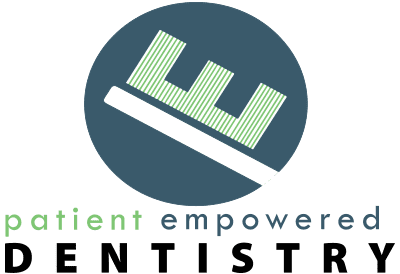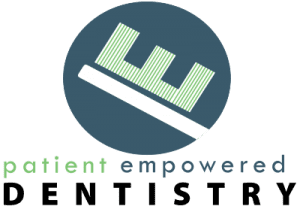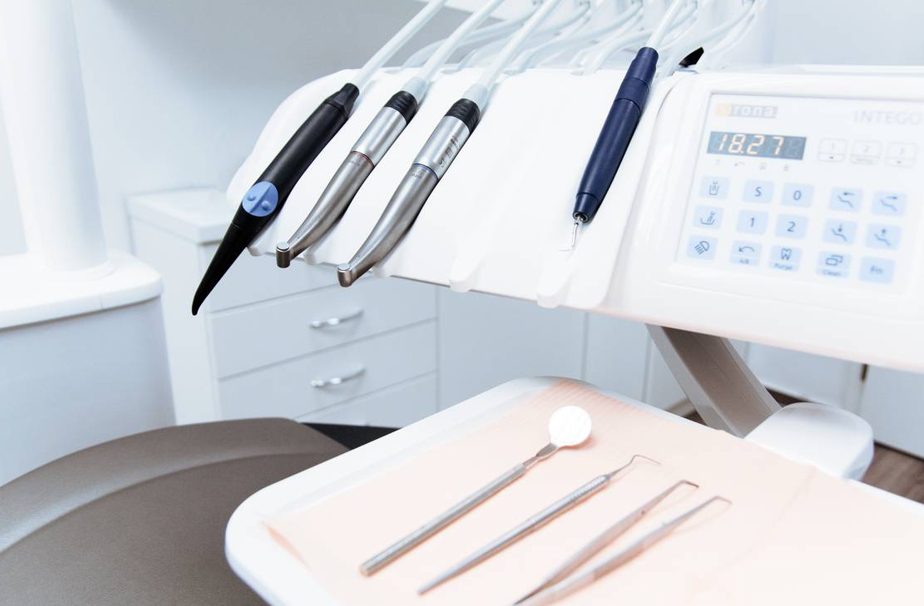Do you find yourself searching dentist near me recently? If so, you’ll be surprised at how many different dental offices exist in your area. Loads will come up after a quick Google search, leaving you to wonder which one is worth choosing. More to the point, is there any reason to shop around for dental work? Surely every dental office offers similar procedures at comparable prices, right?
The short answer is no; all dentists are different from one another. This includes the procedures offered as well as pricing for treatments. A brief answer to the question “Can you shop around for dental work?” is a resounding yes! Not only can you, but it’s often encouraged that you shop around before choosing your dentist. This helps you find the best dentist near you, allowing you to get more bang for your buck.
Naturally, you have many considerations when shopping around for dental work. We’ve put together a guide to help you understand how to shop around and find the best dentists.
Do You Have Insurance?
According to a study in 2016, only 77% of the US population had some sort of dental insurance. This means that nearly a quarter of people aren’t covered when visiting the dentist. In turn, you have a lot more to worry about when shopping around for dental treatment.
With insurance, the majority of procedures are covered. Indeed, any preventative treatments will be covered by insurance, and you can get some cosmetic procedures paid for as well. Therefore, the costs of your treatments aren’t as big of an issue. As long as they fall under the allocation of your dental plan, it won’t matter how much they are. Your plan won’t cover 100% of the costs, but the amount you have to pay will be a lot less than if you didn’t have insurance. While fluctuations in price will exist, it’s not nearly as bad.
In comparison, people without insurance don’t have the same luxury. The actual cost of dental treatments can vary across the country – and even within the same region. It’s certainly not uncommon to see some patients paying double the price of others because of their choice of dentist. We’ll get into the reasons for price fluctuations a little bit later. For now, just know that shopping around is essential when you don’t have dental insurance to keep the costs as affordable as possible.
What Type Of Treatment Do You Want?
We spoke about this briefly in the previous section, but the type of dental treatment matters greatly. Generally, most insurance plans will cover the following:
- Preventative care
- Restorative care
- Orthodontic treatments
- Periodontal treatments
- Prosthodontics
Preventative care relates to the bread and butter of dentistry. This includes all treatments that help to prevent issues from arising. Things like x-rays, extensive tooth cleaning, sealants, and check-ups are covered.
Restorative care, as its name suggests, looks at restoring any dental problems. The most common examples are fillings, crowns, bridges, etc. You can also add prosthodontics under this heading as it deals with the creation of oral aids to replace missing teeth. Again, this includes bridges and even dentures.
Orthodontic treatment deals with things like braces and has more to do with correcting alignment and placement issues with your teeth. The AAO also states that it diagnoses and treats dental and facial irregularities.
Lastly, you have periodontal treatments, which are all about your gums. Some of these can come under other headings – such as preventative or restorative. Still, periodontics is a sub-section of dentistry that requires additional training to perform.
If you have a full-coverage insurance plan, it will likely offer some degree of coverage for all of these treatments. However, you may need to add specific treatments if you have an individual policy. It can get confusing, and we’re not here to discuss the ins and outs of dental insurance! All you need to know is that these treatment areas can be covered by insurance plans.
With that in mind, what isn’t covered by dental insurance? Typically, cosmetic treatments won’t be covered by most insurance plans in any way. This is because they’re not deemed ‘essential’ enough to be paid for. Cosmetic dentistry is all about improving the appearance of your teeth and mouth. It doesn’t tackle any oral health conditions; it’s optional, something you pay for if you want to look better.
So, if you want cosmetic treatments, you will have to do some shopping around to find the most affordable options. Similarly, if your insurance plan doesn’t cover specific treatments, you need to find the best dentist for the job.
How Much Does Dental Treatment Cost?
It’s impossible to provide an answer to this question as so many variables are involved. As you’ve just seen, dental treatments are split into different categories. Within each category, you will also find multiple treatments of different severities and difficulties. Restorative treatment is an excellent example; the cost of one filling will be far less than the price of a root canal. The best we can say is that the more complex a procedure is, the more expensive it will be.
A great way to show how vast the price difference is that a dental office appointment can be as little as $50, while dental implants can go up to well over $40,000 from some providers. Clearly, this brings up two new questions:
- What influences the costs of dental treatment?
- How do I know if I’m overpaying for dental treatment?
What Influences The Costs of Dental Treatment?
The list of factors is extensive, as loads of different things contribute to the overall price you pay for a procedure. We’ll attempt to go through all of the main factors in this section, including:
- The treatment difficulty
- The materials used
- The equipment required
- The dentist’s experience
- The local area
To begin with, the treatment difficulty is one of the most significant factors in determining the costs. Part of this is due to the materials and equipment required, but we’ll talk about both of these in a minute. Mainly, it’s because simple treatments can be done a lot faster than complex ones. Going back to the previous example, a filling can be completed by any talented dentist in a matter of minutes. Everything is taken care of in one appointment, and you walk out of the office without needing to return. A dental implant can take far longer and will require numerous appointments. Thus, it’s only natural that a complicated procedure costs more money.
Furthermore, complicated procedures usually require more materials. This means it will cost your dentist more money to carry out the treatment. Similarly, you may have a choice between materials to alter the cost of your treatment. For instance, most fillings are either composite or amalgam. Composite fillings are more natural, which means they cost more. So, you can see how the choice of materials plays a role in the overall price.
Likewise, the equipment demands relate to the specific treatment. With a filling, your dentist will probably use a drill, a suction tube, and some other hand tools. Before that, they will take an x-ray, but this is often charged at the previous appointment. Now, let’s look at a crown, which is a slightly more complex restorative procedure. The same equipment is used, but your dentist will also need to take impressions. This helps them create a mold of your teeth to make an accurate crown. Then, they get the crown made in a lab, which increases the equipment requirements. All of a sudden, two similar treatments have vastly different costs because of the demand a crown puts on the resources needed.
Next, the experience of a dentist can influence pricing. An inexperienced dentist can’t get away with charging extortionate rates. No patient would choose them if they did because you can’t trust that they’ll be good! Experienced dentists have lots of testimonials and positive reviews, building trust with patients. Thus, they can charge higher rates because there’s proof that they’re worth it.
Finally, the location of the dental office has a significant impact on treatment prices. It’s all to do with the economy of the local area! We won’t dive too deeply into this as it’s not relevant to dentistry. All we’ll say is that dental treatments cost more in the regions that are perceived to be more expensive than others.
It’s also worth mentioning that the amount of staff a dental office has – and the overall operating costs – will also lead to price fluctuations between offices. Still, this should give you more information as to why dental work is priced as it is. Lots of expensive equipment and materials are used in treatments, and it costs money to run a dental office. So, this is why some treatments are seen as very expensive in the public eye.
How do I know if I’m Overpaying for Dental Treatment?
It’s hard to tell if you are being ripped off by a dentist. Some dental offices will publish prices on their websites for everyone to see. Here, you can compare them to see who offers the best price. Still, you must keep in mind that cheap dental treatments aren’t always the best!
If you want a more in-depth look at things, there are some online resources that compare the average treatment costs depending on specific procedures. It should give you a good idea as to what you should and shouldn’t pay for an appointment.
What are the Best Tips for Shopping Around?
All of the previous sections have underlined the key questions when shopping around for dental treatment. Now, let’s look at a few tips to help you find the best dental office in your area:
Select an experienced dentist
Experience is so crucial when you pay for dental treatment. After all, you will pay a good amount of money for a necessary procedure. Many things could go wrong if your dentist isn’t up to par. When searching for dentists, click on the website to find the information section. This will usually be titled ‘About Us’ or ‘Meet The Team,’ and it displays info on the dentists. Ideally, you will choose an office that has dentists with years of experience behind them. The more experience and training a dentist has, the better they will be at their job.
Check reviews and testimonials
Spend time reading through different reviews and testimonials as you shop around. This is the best way to know if a dentist is good or not. Countless bad reviews suggest a dentist doesn’t provide good services. Loads of positive reviews dictate the opposite! The more reviews a dentist has – with a mostly positive reception – the more you can trust them.
Look at the services
Clearly, you need to find a dentist that provides the right services for you. Some dentists specialize in one specific area and don’t step outside it. Others will give a blanket service that covers lots of different areas. At our office, we offer everything from family dentistry to cosmetic treatments! However, if you needed braces, you’d have to look for an orthodontist instead of a dentist.
Consider value-for-money over cheapness
A considerable part of this guide has revolved around the cost of dental treatment. Inevitably, this is one of the biggest worries when comparing providers. However, it’s unwise to find the cheapest option and choose it right away. We’re talking about your health here! Cheap doesn’t always mean the best – it can often result in inadequate treatments that don’t last and need to be corrected. Instead, find the best value-for-money by weighing the price of the treatment you are looking for against the reviews and the dentist’s experience. It makes more sense to pay slightly more than the cheapest option if you’re confident that the treatment will last longer and be of a higher standard!
Contact Us!
We hope this guide has helped you understand how to shop around for dental work. With these things in mind, if you’re looking for an affordable dentist in Eastpointe, Michigan contact us today. We offer a wide range of treatments from an experienced dentist in a calm and caring environment. Get in touch with our team to schedule your appointment now!



